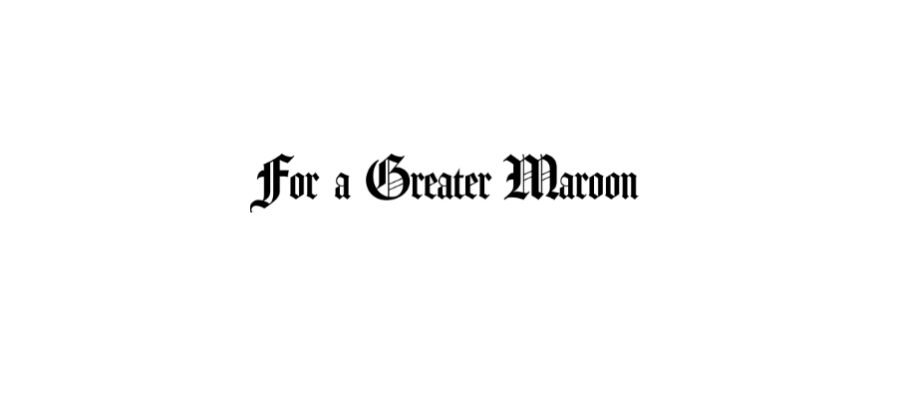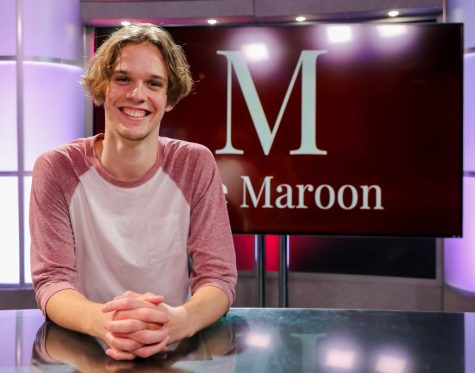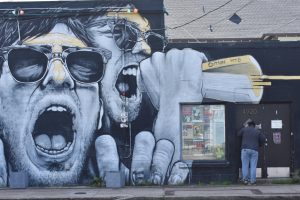Editorial: For a Greater Maroon
February 11, 2021
Ever since its founding, The Maroon’s mission has been simple: “For a Greater Loyola.” The thing is, this newsroom hasn’t always done that to the best of its ability. For almost 100 years, The Maroon has been a source of news and a record of student life here at Loyola, but too often it has not given adequate representation to Black students and other people of color on our campus. We need to change that.
Our code of ethics says that The Maroon is “a mirror and a lamp.” Unfortunately, that mirror has often been warped, and that lamp has often been too dim. For all its great accomplishments, this paper has often fallen short in its long history, even recently. Last summer, several public accusations of racism were leveled against the outgoing director of the School of Communication and Design, Sonya Duhé. It was known among students that Duhé contributed to an environment that many students of color found hostile and unwelcoming. Most students were aware that many felt Duhé was racist, but little was ever done about it, whether due to fear of retaliation, the discouragement that came with knowing that she had been reported before without any meaningful consequences, or simple indifference.
Duhé did not face consequences until students and faculty at Arizona State University heard from Loyola alumni and objected to her hiring at Arizona State. Something should have been done about her conduct during her 11 years at Loyola, not after. Responsibility for that mostly falls on the university and on the School of Communication and Design itself. But it’s also true that as Loyola’s student media outlet, The Maroon should have done more to hold the school accountable. In hindsight, it’s clear that Duhé drove many students of color away from The Maroon, but we can’t place the blame exclusively on her. The problem was not just one person—it was also the system that allowed one person to hurt so many students.
However, we’ve made a commitment to do better and we are working constantly to make sure that we are taking clear, concrete steps toward a more inclusive and equitable future, both in our newsroom and in our coverage. It won’t be easy—the nature of college journalism dictates that nobody is in positions of leadership for more than a couple of years, so we have to create systemic change that outlives our time in college. But we’re doing what we can right now, and we’re taking the time to make sure that these changes are meaningful and long-lasting, so that they will continue to better The Maroon after we leave.
This month, we’re placing a special emphasis on Black History Month, with Zontré City acting as a guest editor to help us shine a spotlight on Black students and other members of the Loyola community. But we want to be clear that our commitment to better representation doesn’t end here.
This semester, we have added an equity and inclusion officer to our staff for the first time. This dedicated position will help us to make the newsroom and our coverage more representative of Loyola as a whole.
Our first equity and inclusion officer, Gabriela Carballo, has already begun conducting an internal audit, examining the makeup of our staff and comparing it to the student body at large. This internal audit will give us detailed information about exactly what and where we need to improve going forward.
We’re also working with Kedrick Perry, Loyola’s new Vice President for Equity and Inclusion. We hope that with his expertise and guidance, we can find new ways to make The Maroon more welcoming and accessible to all. We want to give every voice an opportunity to be heard and every story an opportunity to be told.
We’ve also created an alumni board, a rotating group of former Maroon staff members who have taken the time to come back and mentor current students. This board has a special focus on alumni of color who can teach younger generations of journalists how to navigate the specific challenges that come with being a person of color in the journalism industry.
We also want to extend an invitation to you, our reader. We are always looking for students eager to help tell our community’s stories—no experience required. If you have an opinion that you want to share with Loyola, please let us know. If you see something that you think should be getting news coverage but isn’t, reach out. We want to hear from you.
We’re working hard to hold ourselves accountable. The news should be accessible, and so should our newsroom. We are proud of the changes we’ve made so far, but we know that we’re not finished. We know that this will require sustained effort. We won’t be finished until every story that deserves to be told gets told. That’s how we become a clearer mirror and a brighter lamp.








